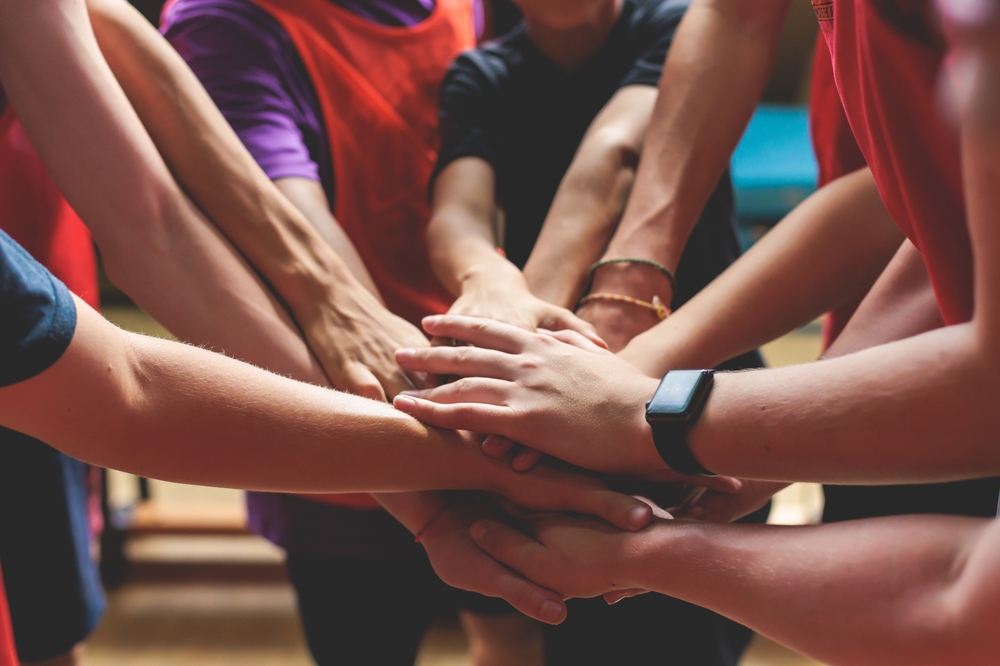Winning or losing in sports is not just about being physically fit and skilled. Other mental aspects can also affect performance. It is essential to have well-established relationships and open lines of communication.
Moreover, working cooperatively with others is also crucial to team success. Overall, teamwork requires much effort and commitment from each individual. So, let’s start by looking at a team’s different roles and positions and trying to understand how they work together.
The Foundation of Trust
The building block of a victorious sports team is dependability. It is a vital component for communication and ensures your interaction runs smoothly. The ability of athletes to rely on their teammates is essential during any game. Coaching is equally important, as athletes must trust their coaches to make decisions. Building relationships requires effective dialogue, honesty, and a collective faith in a single purpose.

Communication
Communication like glue is effective, and the fact that it plays a vital role in the togetherness of sports teams is undeniable. Communication is essential for group activities. It can be a small action or a big word of encouragement that helps us come together as a team. It’s about how we share ideas and work together. When the tension is high, even little gestures and expressions can convey more meaning than words, resulting in silent communication that helps us relate better with our teammates.
Leadership
To be a successful team, sports players need someone who can go beyond the basics of scoring goals and tackling the opponent. Leadership is not limited to giving orders. It also involves motivating individuals, developing a healthy work ethic, and tackling challenging situations quickly. A leader’s job is to understand every team member’s strengths and weaknesses. It’s their responsibility to help individuals flourish to their potential.
Team Culture
The sports team has an identity that its members create. It determines how the people in a group of people work together. It also helps in making choices, and dealing with issues. When people feel good about their team, they’re less likely to put in extra effort. A toxic work culture can create a hostile environment and affect work efficiency.
Conflict Resolution
Sports teams, like any other group of individuals, are sure to have disagreements and differences of opinion. On the other hand, the way they solve a problem is essential to determining how efficiently the group can fulfill their target. An important aspect of successful conflict resolution is the ability to have an open and empathetic discussion with all parties. It is also involved to work towards finding solutions that meet the needs of everyone involved.
Celebrating Success
Sports are inherently competitive, and winning and losing are significant to the team’s functioning, as failure teaches you a valuable lesson. Likewise, the individual must gain knowledge and experience from mistakes to develop and progress. When we have setbacks, we have to change them into a good thing because if we can take the good parts of what went wrong and positively apply them, we will be much better as a team.

Conflict Resolution
Sports teams are no different from any other group of people in that disagreement. These variations of different opinions are unavoidable. Finding solutions that satisfy the needs of all parties concerned and conducting honesty. Compassionate discussions with them are critical components of effective conflict resolution. If conflicts are addressed as soon as possible, it will prevent them from causing any harm later. It is essential to talk about issues immediately, or it can harm teamwork.
Conclusion:
Sports teams are more successful than individuals because of feedback from coaches and teammates, teamwork, discipline, and chemistry, not only individual talent. It is a product of constructive teamwork based on trust, open communication, good leadership and a positive work environment. Like how society functions, teams in sports also mirror the same values of cooperation, acceptance of differences and the capability to adjust to circumstances. Success won’t come easy, and journeying towards it always involves facing some obstacles. Only through unwavering support and unity can teams overcome challenges and achieve something remarkable.

